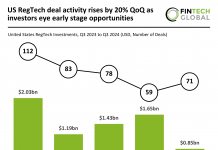In a recent post, RegTech firm Eventus outlined key reasons why practitioners must be the key drivers behind trade compliance.
In the ever-evolving financial sector, industry leaders must always be on the ball to anticipate their firm’s challenges and opportunities. This is particularly relevant for compliance practitioners entrusted with trade surveillance. As the landscape shifts, the question arises, are we adequately adapting to the current and future challenges? Several recent instances suggest a need for attention.
One high-profile bank found itself without surveillance on its voice-brokered swaps desk, a negligence which cost it a hefty $45m fine for spoofing. Similarly, the Financial Industry Regulatory Authority (FINRA) has voiced concerns over “non-specific surveillance thresholds” found to be not reasonably designed, based on their 2023 exam findings. Further, the Commodity Futures Trading Commission (CFTC) intends to fortify its market surveillance unit with significant budgetary hikes.
The U.K.’s Financial Conduct Authority (FCA) and the U.S. Securities and Exchange Commission (SEC) are part of the regulatory bodies sending strong reminders and proposing ambitious market structure modifications that could potentially alter trade surveillance parameters. Regulatory authorities across jurisdictions in the Asia-Pacific (APAC) region, including the Monetary Authority of Singapore (MAS), the Securities and Futures Commission (SFC) in Hong Kong, and the Australian Securities and Investments Commission (ASIC), all highlight the prevalent concern over market abuse.
It seems evident that while compliance professionals are tuned into this regulatory scrutiny, there’s room for debate on whether firms are effectively utilising trade surveillance resources to mitigate risk. As Eventus reveals in a recent report, global regulators are compelling compliance leaders to revisit their trade surveillance capabilities and tailor these systems to confront new risks.
It’s observed that the compliance journey often progresses from new rules and guidance to warnings and eventually enforcement. Despite this, updates in compliance systems, alert parameters, and processes that could stave off many troubles frequently lag behind regulatory oversight. Among the challenges are pressure to minimise the total cost of compliance operations, outdated technology struggling to deal with false positives, growing market complexity, and a continual push to cut down operating costs.
The current theme among compliance leaders worldwide is a plea for flexible compliance technology that aids their teams rather than becoming a hurdle. According to a recent survey, 94 percent of respondents have seen the challenge of trade surveillance complexity grow over the last three years. Leaders seldom believe in status quo safety and desire flexible, expertise-rich systems.
The report concludes that firms with outdated parameters or alerts not customised to their businesses are in the global regulators’ crosshairs. Just like financial debt, the weight of technical debt can mar a firm’s bottom line and reputation.
The most seasoned compliance teams anticipate and prepare for what behaviours might draw regulatory attention in the near future. As we look ahead, it is clear that issues such as cross-product manipulation, multi-asset surveillance, and adequate explainability in machine learning will be hot topics in investigations and enforcement cases this decade. However, amidst these challenges lies the opportunity to build market surveillance tailored to specific needs, using industry expertise, experience, and flexible technology.
Eventus, a leading global provider of multi-asset class trade surveillance, algo monitoring and risk controls solutions, is one such company offering the Validus platform. Customisable and easy to deploy, it operates across equities, options, futures, foreign exchange (FX), fixed income and digital asset markets, striking a balance between compliance and risk.
Read the full post here.
Keep up with all the latest FinTech news here
Copyright © 2023 FinTech Global











